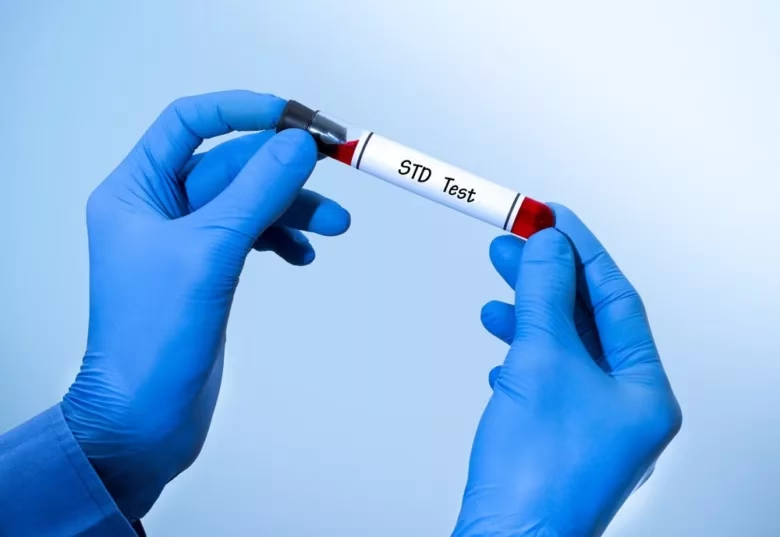HIV and AIDS have been the subject of many myths and misconceptions for decades. These beliefs have occasionally led to practices that enhance the risk of catching the virus.
Although there are still mysteries surrounding HIV, experts have learned a lot about the virus and how it is spread. It is crucial to refute these myths to assist people to grasp the realities regarding HIV and AIDS and take proper measures.
This blog will explore some common myths about HIV and AIDS, provide facts to debunk them and ensure safe STD tests.
HIV myths and facts related to transmission and prevention
Here are the myths and facts about HIV transmission and prevention:-
Myth 1: HIV may spread by touching or kissing.
Fact: HIV does not pass through saliva, and it is improbable to develop or transmit HIV via open-mouth kissing.
Myth 2: HIV may be transferred by contact, tears, sweat, saliva, or urine.
Fact: HIV is transferred by contact with biological fluids such as blood, semen, vaginal secretions, and breast milk.
Myth 3: HIV is a government effort to exterminate minorities.
Fact: HIV is a virus that may infect anyone regardless of race, ethnicity, or sexual orientation.
Myth 4: Contracting HIV guarantees death from AIDS.
Fact: AIDS is the last stage of an HIV infection, which might happen if HIV is kept untreated for a long period. With adequate treatment, persons with HIV can live long and healthy lives.
Myth 5: Only specific populations are at risk for HIV.
Fact: Anyone can develop HIV regardless of sexual orientation, gender identity, age, race, or ethnicity.
Myth 6: Mosquitoes may transmit HIV.
Fact: HIV cannot be spread by mosquito bites.
Myth 7: HIV may be caught via donated blood or organs.
Fact: In most countries, donated blood and organs are checked for HIV and other illnesses, making it exceedingly uncommon to catch HIV through blood transfusions or organ transplants.
Myth 8: HIV inevitably leads to AIDS.
Fact: With adequate treatment, persons with HIV can live long and healthy lives without contracting AIDS.
Myth 9: HIV may spread by sharing glasses and utensils.
Fact: HIV is not transferred via casual contact, such as exchanging cups and utensils.
Myth 10: HIV may be avoided by avoiding engaging in vaginal or anal intercourse.
Fact: HIV can be transferred through oral sex, sharing needles, and other sexual contacts. Using condoms and practicing safe sex can greatly minimize the risk of HIV transmission.
Myth 11: All HIV-positive persons will acquire AIDS.
Fact: With adequate treatment, persons with HIV can live long and healthy lives without contracting AIDS.
Myth 12: HIV is a forgotten illness.
Fact: HIV is still a substantial health concern, with over 36,000 new HIV infections in the US annually and over 18,000 fatalities.
Myth 13: HIV medicines may cure HIV.
Fact: HIV drugs can lower the quantity of the virus in the body, but they cannot cure HIV. Antiretroviral treatment (ART) can lower a person’s viral levels so that HIV is untransmittable, but it will not prevent the transmission of other sexually transmitted illnesses.
These beliefs and preconceived notions fuel HIV-related stigma and prejudice, which may harm the health and well-being of HIV-positive people. We must dispel myths and preconceptions about HIV and educate ourselves and others to lessen stigma and prejudice.

How to address stigma and discrimination related to HIV?
Here are some steps to address and teckle the HIV-related stigma:-
- Recognize the harmful consequences of stigma and discrimination: Stigma and discrimination associated with HIV/AIDS may substantially influence medical care, prevention measures, and the general well-being of those living with the infection. Understanding how stigma and discrimination impact communities impacted by HIV/AIDS and the people who live in them is crucial.
- Educate others as well as yourself: Learn more about the symptoms of the illness and the spread of HIV/AIDS. Dispel any myths or assumptions by discovering the truth. Spread accurate knowledge to others to thwart ignorance and advance comprehension.
- Use inclusive and non-stigmatizing language: When addressing HIV/AIDS, avoid using stigmatizing or insulting terminology. Be sure to speak in a way that elevates the person above their HIV status. This promotes respect and understanding while assisting in the elimination of stigma.
- Dispel erroneous beliefs and biases: When you come across ignorance or bias concerning HIV/AIDS, discuss it. To correct false information, provide accurate information, and aid in debunking myths and eradicating stigma.
- Aid and advocacy for persons with HIV/AIDS: Show those who are HIV-positive kindness, empathy, and support. Be an ally and an advocate for their rights, fair treatment, access to healthcare, and other forms of support.
- Encourage confidentiality and privacy: People with HIV/AIDS should maintain their privacy and confidentiality. Ask for permission before disclosing someone’s HIV status, and encourage others to do the same. Confidentiality reduces worry about stigma and discrimination.
- Foster inclusive and supportive communities: Participate in educational and community outreach initiatives that promote testing and prevention, reduce stigma, and increase public awareness of HIV/AIDS. AIDS campaigns and programs to reduce HIV stigma and prejudice.
- Modify the rules: Support laws and regulations that enhance equality and safeguard the rights of HIV/AIDS patients. Encourage the passage of legislation that guarantees equitable access to employment, healthcare, and other critical services while eradicating prejudice and the stigma associated with HIV/AIDS.
- Seek support and resources: Find local organizations, support groups, or medical experts who can assist if you or a loved one has HIV/AIDS. These resources include information, treatment, and strategies for overcoming stigma and discrimination.
You may help someone living with HIV by educating yourself, providing support, speaking out against stigma and discrimination, encouraging self-care, and assisting someone with stigma management and encouraging STD testing.
Choose Affordable Rapid Testing for seamless HIV tests.
In our attempts to eradicate HIV, it is crucial that we rely on evidence-based information, dispel myths, and promote realities. Doing this might combat stigma and create a more compassionate and knowledgeable culture about HIV/AIDS.
When choosing a rapid HIV test, it’s important to consider factors such as test availability, reliability, and cost. Affordable Rapid Testing is a renowned STD clinic that offers same-day testing for HIV and other sexually transmitted diseases and infections. They offer 100% confidential testing and have well-equipped labs for seamless HIV testing in Phoenix and Scottsdale, Arizona.


